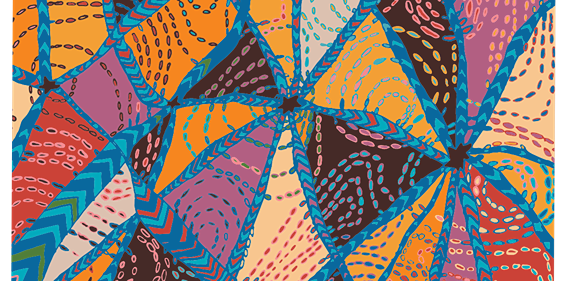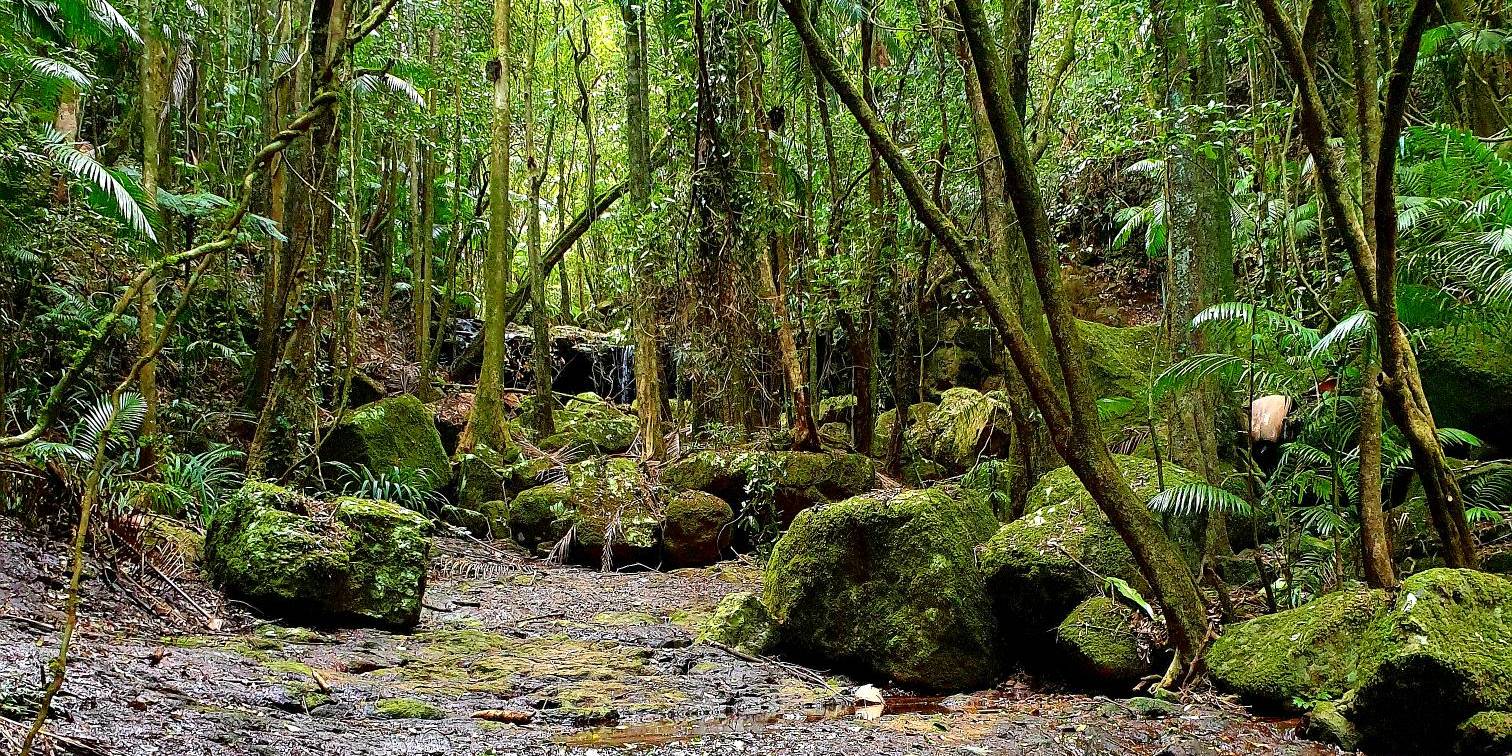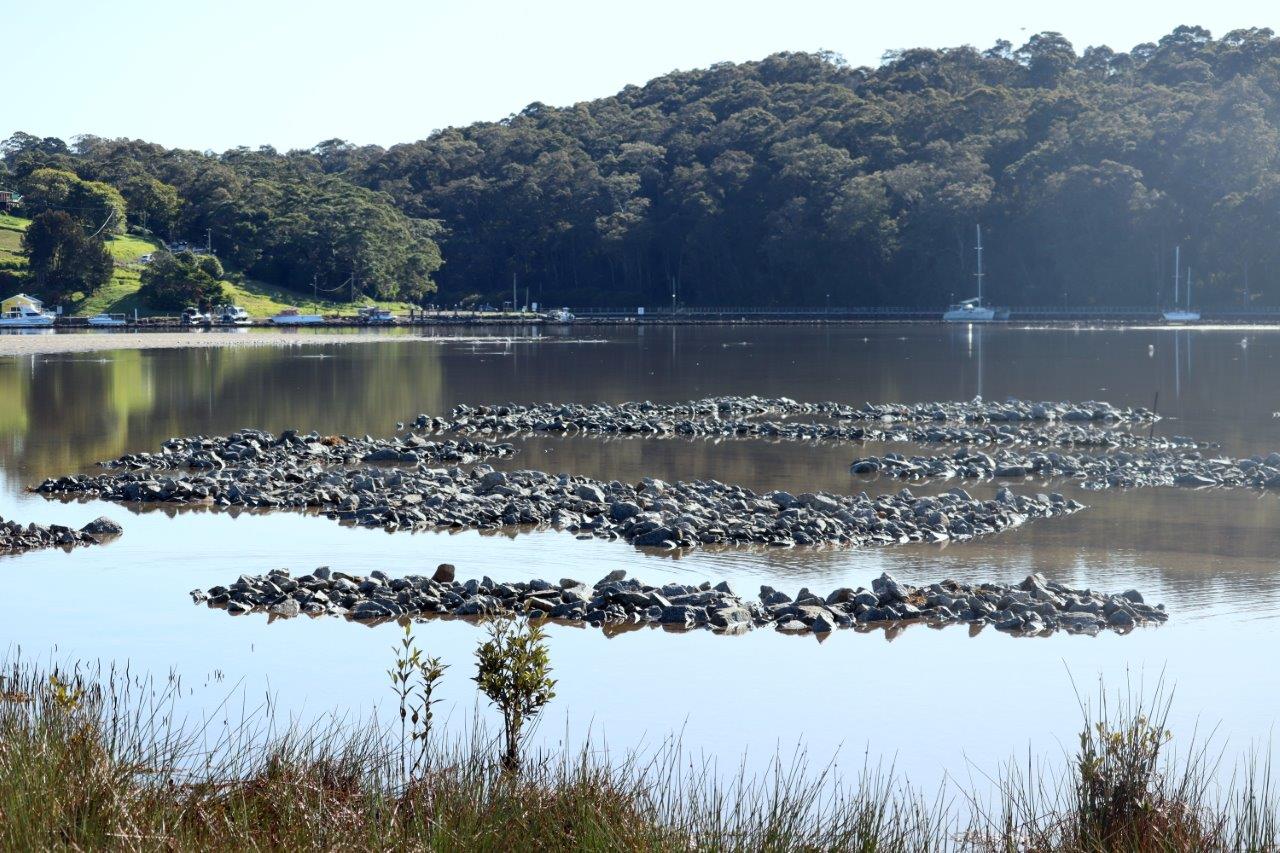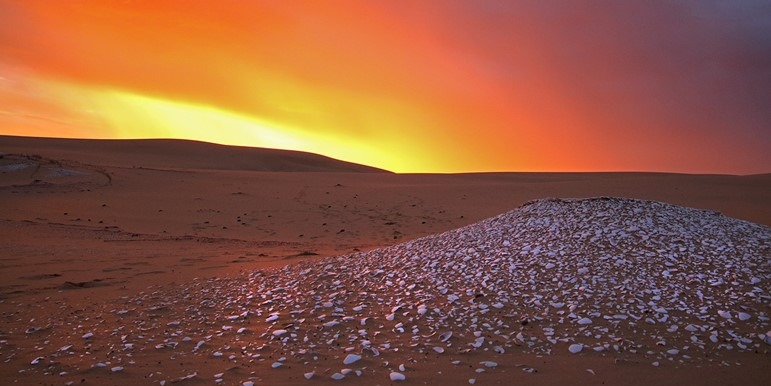About this case study
Drought
Communities
Community engagement
Cultural knowledge, practice and archaeological evidence show us that Aboriginal people have lived through climate change before – and listening to their voices can help us to understand how to live through climate change again.
We have learnt that climate change is a mirror – and that Country holds up that mirror. If we accept that we are its reflection, the cause of climate change, then we can change. There is always cause for hope…That’s the wisdom of Aboriginal culture.
Mal Ridges, Team Leader Cultural Science, NSW Government
The Narran Lakes system is spiritually and culturally important to Aboriginal people.
For thousands of years, the Yuwaalaraay / Euahlayi people have lived with the natural rhythms of the lake system they call Dharriwaa. They developed a deep knowledge of the lake's ecology, tracked the movement of fish and birdlife with acute observation, and gathered plants and mussels for food, medicine and shelter.
Today, birds from as far away as Siberia seek refuge in Dharriwaa’s waters. Coastal shell middens contain the remains of shellfish eaten by the Traditional Owners for millennia, while clay ovens, quarries, stone artefact scatters and the remnants of fire hearths tell the stories of the Dharriwaa’s long human history.
But prolonged periods of drought, hotter summers and less rainfall are changing the Narran Lakes system.
Jason Wilson, a Yuwaalaraay/Euahlay and Gamillaroi Nations man and chair of the Narran Lakes Joint Management Committee, has watched Dharriwaa change over his lifetime. Mussels that were once plentiful are now in short supply. “I have not had the opportunity to harvest the mussels to add to these beautiful middens up here and teach [my son] his culture. That's a process whereby I can't continue to pass on what I've learned. So, the impacts [of climate change] are real for Aboriginal people,” he says.
Teaching culture means not only to come to understand the landscape as a resource but also as its own identity – as a teacher with its own knowledge and experience to share. Everything within the landscape has role, purpose and is interrelated. Learning and teaching culture is about understanding your role within that system.
What we are learning in this project is that Aboriginal people bring a particular perspective to climate change - and that perspective concerns our values. What we've learnt is that the health of Country and her voice is a reflection of how we are treating her.
Mal Ridges, Team Leader Cultural Science, NSW Government
The Narran Lakes Joint Management Committee and the Worimi Lands Conservation Board are collaborating with the NSW Government on a project to maintain healthy cultures in a changing climate.
"We are well aware of how climate change is affecting the environment. But we also need to understand how it is affecting cultural values and we need to do that in close consultation with Aboriginal people,” says the project’s convenor, Mal Ridges.
The first stage of the Climate Change Adaptation Project identified indicators of healthy culture and has developed a series of resources to help Aboriginal communities maintain healthy cultures as the climate changes.
But Mal Ridges says the project is a cultural exchange that offers rich insights into how our values influence the way we, as Australians, connect with Country.
“Aboriginal people have been through climate change before. By listening to them we can change the way we think about climate change, and how we adapt.”
During the last Ice Age, around 21,000 years ago, Aboriginal Australians adapted by moving to well-watered areas, such as along rivers. An estimated 80% of the continent was abandoned. While climate extremes continued for thousands of years, Aboriginal people adjusted.
Aboriginal culture itself is also an adaptive response. By focusing on core values of maintaining close relationships with Country, and by understanding health as holistic and interconnected, Aboriginal people adjusted and responded in practical and sustainable ways as Country changed.
While our continent has always changed, the difference this time is us, Mal notes. “We know we are the cause.”
Aboriginal culture teaches people to look within for solutions to problems before seeking answers externally. “Within the idea of kinship, each of us is responsible for the relationships around us, but we can only control our end of the relationship. Climate change is about our relationship with Country.”
Rather than approaching climate change from a place of fear, this philosophy accepts that Country is doing what it needs to do.
“Climate change is Country, or nature, responding to what we are doing. Country will go on without us. But Aboriginal people are living proof that people can live through climate change and come out the other side. That gives us hope that we can change.”
Meanwhile, the Narran Lake wetlands continue as a meeting place for Traditional Owners to gather, trade and participate in cultural activities.
As Jason Wilson says: “The local Aboriginal cultures have survived because Elders have always been prepared to teach others about their culture. Narran Lakes is a place where Dreaming tracks converge, and creation stories are passed down through the generations.”
Learn more about the collaborative project between the Narran Lakes Joint Management Committee, the Worimi Lands Conservation Board and the NSW Government.
Related content

The importance of the land to wellbeing cannot be understated, which is why strategies to combat and manage the impacts of climate change are crucial. Aboriginal people have been using generational knowledge of land and sea management in response to changing climates over thousands of years.

The NSW Government has created the first holistic adaptation plan to protect a World Heritage rainforest from climate change impacts – and now ground-breaking genetic science is giving some rare and threatened species a helping hand to adapt and evolve.

A key priority of the NSW Marine Estate Management Strategy (MEMS) is to improve water quality and reduce marine litter – and reinstating our long-forgotten oyster reefs has a huge role to play in meeting this priority while helping NSW coastal communities adapt to climate change.
